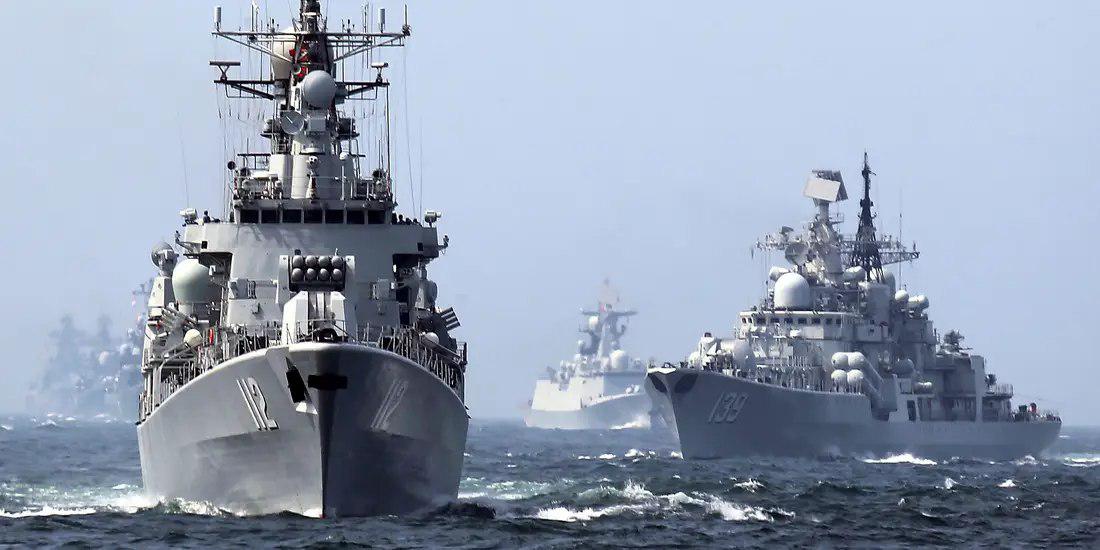Iran, Russia and China are expected to hold a joint naval exercise in the Sea of Oman and northern Indian Ocean on December 27 this year, which is of its first kind since the Islamic Revolution in Iran in 1979. The timing, in addition to the nature of the manoeuvre is of paramount significance for Iran, and probably for Russia and China as well.
As tensions rose in the region as a result of attacks on oil tankers in the Persian Gulf and on Saudi Arabia’s Aramco oil facilities last summer, the United States tried to put the blame on Iran in order to isolate the country in the region and to exert “maximum pressure” against Tehran. Washington attempted to take advantage of the opportunity so as to create a naval coalition against Iran in the region.
Having denied any role in the attacks, Iranian officials made an effort to nix the American strategy by taking some initiatives. Iranian President Hassan Rouhani, during his United Nations General Assembly address in September, unveiled his Hormuz Peace Endeavour (HOPE) for ensuring the security and the stability in the region through cooperation between Iran, Iraq and six countries in Persian Gulf, as well as in coordination with the United Nations. A short time later, Iran brought up the idea of a joint naval exercise with Russia in the region. Weeks later, China also expressed that it was ready to join the drill.
This joint naval exercise with Russia and China is an important step for Iran. Tehran wants to make a case for what it terms “resistance” to US pressure, saying that the American strategy, despite being an economic burden on Iran, has failed to isolate Tehran in politics and security.
Russia sees this cooperation as being in line with the concept of collective security in the Persian Gulf that it proposed to the UN in July. Although the concept includes other regional and international players, this can contribute to the idea if joined by others.
China, as the world’s largest oil importer, relies on Persian Gulf suppliers for a great amount of its energy needs. So the country would be vulnerable to any volatility in Persian Gulf and Strait of Hormuz. As a result, Beijing would do anything short of direct confrontation with the US to diminish the likelihood of any military conflict between Iranians and Americans in the region. In so doing, if Iran seems less isolated, the chance of a war with Iran in Persian Gulf would also seem less likely.
While the naval exercise may benefit Iran in the regional balance against some Arab countries including Saudi Arabia, it seems that it might not share this motivation with Russia and China in conducting the drill. Due to the economic interests they share with the Arab countries, Moscow and Beijing are likely to assure Saudi Arabia and other Arab nations in the region that the drill is not aimed at working with Iran against them.
However, there is a point where all three countries – Iran, Russia and China – see eye to eye in holding the manoeuvre, and that is sending a message to their common adversary or rival, namely the United States. The US, in some ways, has applied a triple containment policy toward China, Russia and Iran. This would be enough to unite these three countries on some fronts against a common foe. Beijing, Moscow and Tehran are more than willing to undermine American hegemony in the region, hindering its presence and influence. For Iran, evading a likely isolation, and for China and Russia, a stronger presence in the region so as to benefit more, will be sufficient for them to bring a counterbalance against the US in the region. The Astana process on Syria has given Iran and Russia the confidence that they need that they can meet targets independent of the US.
All in all, Iran believes that the US intention to create a naval coalition is more aimed at securitizing the region than bringing security to it. Proposing the HOPE initiative, as well as conducting joint war games with the other countries, are a piece of a puzzle where Iran, along with friend and allies, may want to be guardian and guarantor of security and stability in the region, even if the US is not a company. The fate of such an action can depend upon the presence of new members and the durability of the current members in doing so.
